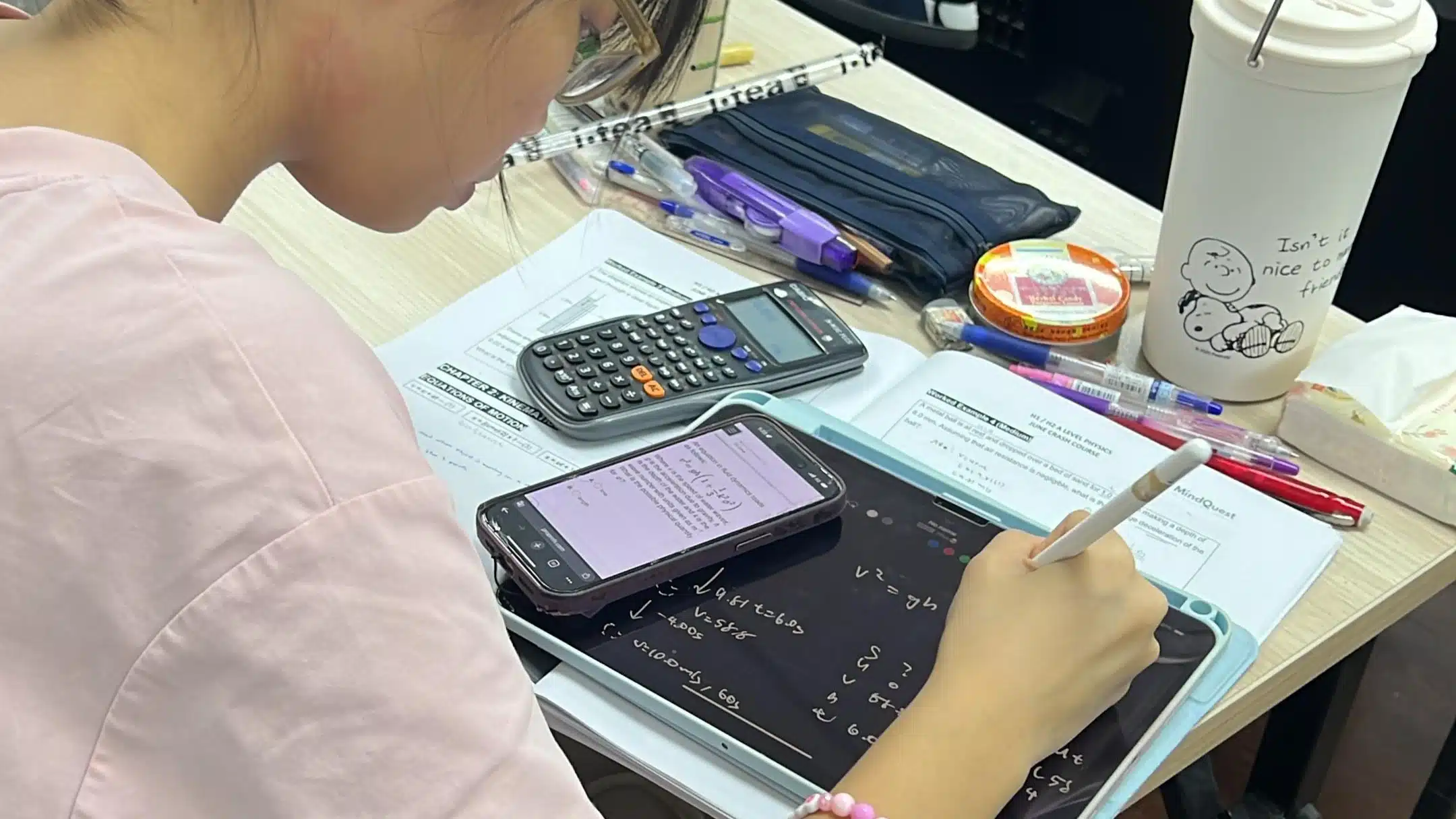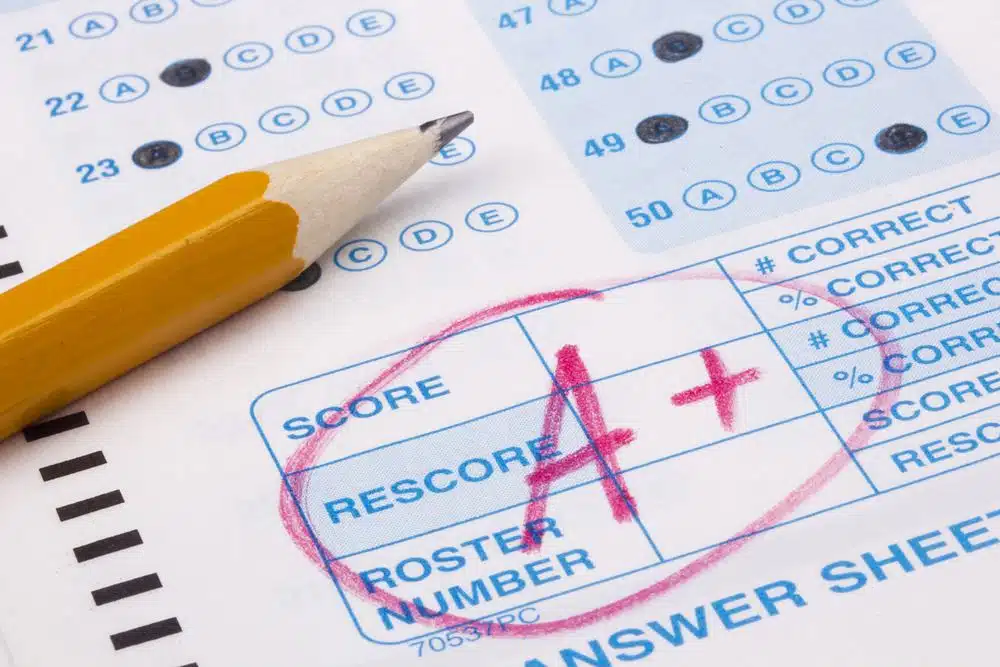Moving from Sec 4 to JC 1 is a big step, and for those tackling Physics, it can feel like a significant leap. Many students wonder how to effectively manage this transition. The increased depth, advanced problem-solving, and more abstract conceptual understanding required for A-Level Physics present new challenges.
This article is your practical guide to making that transition smoother and excelling in Junior College Physics. We’ll show you how to build effective learning plans, highlight the key differences between the two levels, share proven study strategies, recommend helpful resources, and explain common pitfalls to steer clear of.

How JC Physics Differs from Secondary
Understanding the distinction is the first step to bridging the gap. A-Level Physics demands a fundamental shift in how you engage with the subject.
Breadth vs. Depth
While O-Levels introduce a wide range of topics, A-Levels delve much deeper into fewer areas. You’ll spend more time grasping the complexities of concepts like Quantum Physics or Electromagnetism, moving beyond a basic overview.
Mathematical Demands
Prepare for more complex calculations, including deriving formulas and solving multi-step problems that integrate various mathematical principles. For instance, understanding the derivation of equations for projectile motion or harmonic oscillation becomes crucial.
Conceptual Understanding
A-Levels emphasize applying principles to new, unfamiliar situations over memorization. You’ll need to explain why phenomena occur, not simply state what they are.
Advanced Problem-Solving Skills
Problems grow longer, more analytical, and frequently combine multiple concepts. You’ll need to break down complex scenarios and apply a logical sequence of steps to find solutions.
Enhanced Practical Skills
There’s a stronger focus on designing experiments, critically analyzing data, evaluating uncertainties, and understanding the limitations of experimental methods.
Comparing typical syllabuses illustrates this shift clearly. For example, while O-Levels introduce basic circuits, A-Levels explore AC circuits, capacitance, and detailed analyses of potential dividers.

Preparing for A-Level Physics: What to Review
Before you attend your very first A-Level Physics class, consider reviewing these areas:
Strong O-Level Foundation
Revisit core O-Level Physics topics. Ensure you have a firm grasp on concepts like Forces, Motion (Kinematics), Electricity (Ohm’s Law, simple circuits), Waves (sound and light properties), and Energy Transformations.
Math Skills Check-up
Physics relies heavily on mathematics. Brush up on your algebra (solving equations, rearranging formulas), trigonometry (SOH CAH TOA, sine/cosine rules), logarithms, and grasp the ideas of gradients and areas under graphs, which lay the groundwork for basic calculus you might encounter.
Identify Weak Areas
Use past O-Level Physics papers or online quizzes to pinpoint topics where you might need extra review. Being proactive about strengthening these areas will benefit you greatly.
Proactive Learning
If you’re eager, start exploring basic A-Level concepts. Many free online resources offer introductory explanations that can give you a head start.
A solid foundation makes the A-Level journey much smoother!
Creating Effective Study Plans for A-Level Physics
Success in A-Level Physics requires a planned approach. A structured study strategy is essential:
- Get a copy of your A-Level Physics syllabus: This document is your roadmap. Understand its structure, topics, and learning objectives thoroughly.
- Break topics into weekly or bi-weekly study goals: Avoid trying to cram. Divide the syllabus into manageable chunks you can tackle consistently.
- Schedule dedicated study time: Treat Physics study like an important appointment. Allocate specific slots in your week, balancing it with your other subjects.
- Practice problems daily: Consistent practice is crucial. Work through textbook examples and most importantly, topical questions regularly.
- Review previous topics regularly: Instead of just studying new material, revisit older topics periodically. This helps solidify knowledge and improves memory retention.
- Set Realistic Goals: Small, achievable goals (e.g., “master Newton’s Laws this week”) keep you motivated and allow you to track your progress.

Top Study Strategies for A-Level Physics Success
Beyond just planning, how you study significantly impacts your success:
- Problem-Solving Focus: Physics is about applying knowledge. Don’t just read solutions; actively try to solve problems yourself. Break down questions, identify knowns and unknowns, choose the right formulas, and show your working clearly. Use mark schemes to understand how points are awarded for steps. >Download our Physics Compendium consist of mark schemes
- Conceptual Understanding over Rote Learning: Ask “why” and “how” for every concept. Draw diagrams, explain ideas in your own words, and try teaching them to someone else. If you can explain it simply, you’ve understood it well.
- Active Note-Taking Techniques: Don’t just copy. Summarize, use mind maps, or try the Cornell note-taking method. These techniques force you to engage with the material more deeply.
- Using Resources Wisely: Your textbook is a primary resource. Supplement it with reputable online videos, national exam board resources, and if possible, tuition support. Study groups can also be very beneficial for discussing concepts and problems.
- Seek Help: If you don’t understand something, ask! Approach your teachers, use online forums, or discuss with peers. Unaddressed doubts tend to accumulate and make later topics harder.
Avoiding Common Mistakes in A-Level Physics
Be aware of these common pitfalls to ensure a smoother learning journey:
- Underestimating the Challenge: Acknowledge that A-Level Physics demands consistent effort and a genuine commitment to understanding.
- Procrastination: Falling behind in Physics is difficult because topics build on each other. Regular, consistent study prevents overwhelming catch-up sessions.
- Not Asking Questions: Don’t let doubts linger. If a concept is unclear, it will likely impact your understanding of future topics.
- Ignoring Practical Skills: Practical assessments are a significant part of your grade. Don’t neglect them for theoretical study.
- Relying Only on Memorization: While some formulas need memorizing, the ability to apply them conceptually is far more important. Many common misconceptions in Physics arise from rote learning without true understanding.
- Poor Time Management in Exams: Practice timed papers regularly. This helps you get accustomed to the pressure and ensures you can complete the exam within the given time.
Your Journey to A-Level Physics Mastery
Making the leap from O-Levels to A-Levels in Physics can seem challenging, but with a structured approach and consistent effort, success is well within reach. By understanding the core differences, preparing effectively, building a smart learning plan, employing active study strategies, and sidestepping common mistakes, you can master A-Level Physics.
Ready to take control of your A-Level Physics journey? If you need extra support or a structured program to help you excel, contact Physics Academy today! We can help you build a tailored learning plan and provide the expert assistance you need to bridge the gap.

